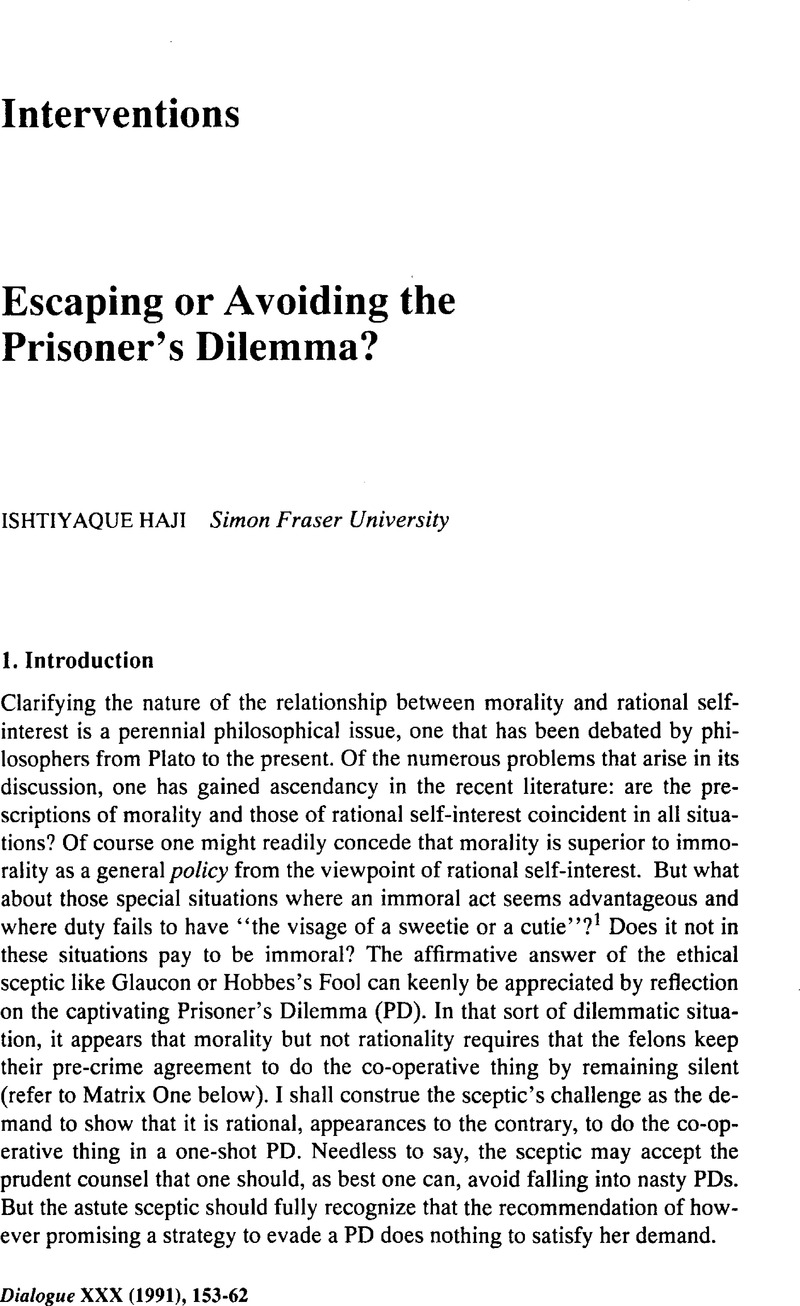Published online by Cambridge University Press: 13 April 2010

1 In Morals by Agreement (Oxford: Clarendon Press, 1986), p. 1Google Scholar, David Gauthier tells us that the poet Ogden Nash grasped the assumptions underlying our moral language more clearly than David Hume when he wrote: “O Duty! /Why hast not thou the visage of a sweetie or a cutie?” References to Morals by Agreement are given in this way: MA, page number.
2 See Gauthier, Morals by Agreement, especially Chapter 6.
3 I shall focus primarily on Duncan Macintosh's “Preference's Progress: Rational Self-Alteration and the Rationality of Morality,” forthcoming in Dialogue. Subsequent references to Macintosh's views are to this paper and they appear thusly: M, page number. Other pertinent papers of Macintosh are “Libertarian Agency and Rational Morality: Action-Theoretic Objections to Gauthier's Dispositional Solution of the Compliance Problem,” Southern Journal of Philosophy, 26 (1988): 499–525CrossRefGoogle Scholar; and “Two Gauthiers?” Dialogue, 28 (1989): 43–61.CrossRefGoogle Scholar
4 Here is a revealing passage from Gauthier, Morals by Agreement, p. 170: “Consider a purely isolated interaction, in which both parties know that how each chooses will have no bearing on how each fares in other interactions. Suppose that the situation has the familiar Prisoner's Dilemma structure.… In such a situation a straightforward maximizer chooses not to co-operate. A constrained maximizer chooses to co-operate if, given her estimate of whether or not her partner will choose to co-operate, her own expected utility is greater than the utility she would expect from the non-co-operative outcome.” The passage strongly supports the view that Gauthier is concerned with producing a solution to a genuine PD. Notice, in addition, that talk of constraining one's maximizing behaviour would be wholly misleading if Gauthier's concerns were with a situation in which it were straightforwardly rational to do the co-operative thing.
5 Macintosh questions this assumption. See section 5 below.
6 I have discussed other aspects of Gauthier's solution in “The Compliance Problem,” Pacific Philosophical Quarterly, 70 (1989): 105–21.CrossRefGoogle Scholar
7 This interesting objection is developed in detail by Macintosh in “Libertarian Agency and Rational Morality.”
8 Perhaps revision is uncalled for if the preference to defect against an unconditional cooperator is “controlling” for choice.
9 Parfit, Derek discusses a number of “avoidance strategies” in Reasons And Persons (New York: Oxford University Press, 1986), Chapter 2.CrossRefGoogle Scholar